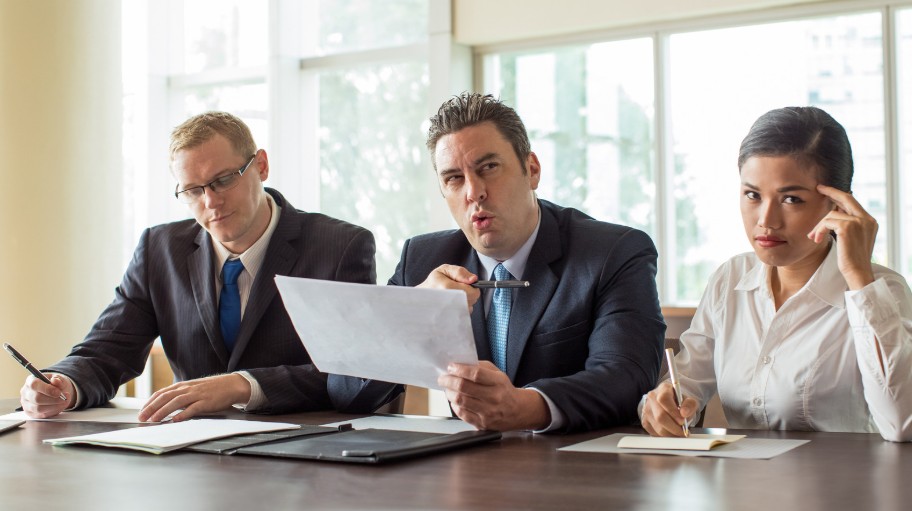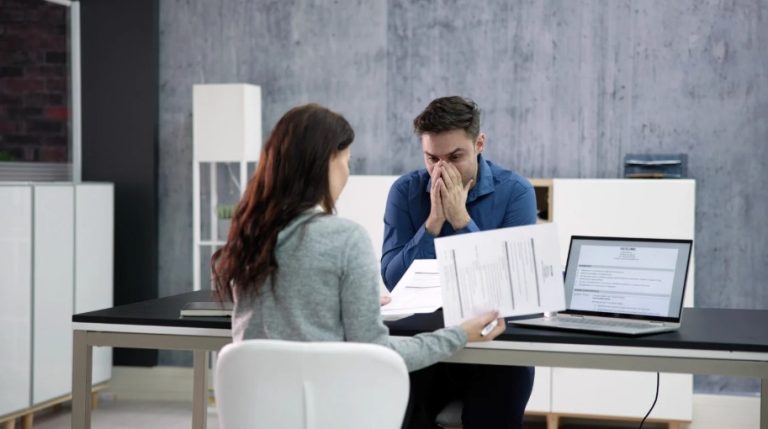How to Report a Company to Trading Standards in the UK?
If you believe a business has acted unfairly, broken consumer laws, or engaged in fraudulent practices, you have the right to report them to Trading Standards. This organisation investigates illegal business activities, including misleading advertising, scams, and unsafe products.
However, Trading Standards does not handle individual disputes or provide refunds. Instead, they use the information from reports to take legal action against rogue businesses and protect consumers from further harm.
This guide will explain when and how to report a company to Trading Standards in the UK, what happens after filing a complaint, and alternative ways to resolve consumer issues.
What is Trading Standards?

Trading Standards is a government-backed body responsible for ensuring businesses comply with consumer protection laws. Their role includes investigating companies that engage in unfair or illegal trading practices and taking action when necessary.
They focus on a wide range of issues, including:
- Selling unsafe or faulty products
- False or misleading advertising
- Scams and fraudulent business activities
- Businesses that pressure or mislead consumers
- Traders who fail to honour consumer rights
Trading Standards does not resolve individual disputes, provide refunds, or intervene in personal transactions. However, they take action against businesses that repeatedly violate consumer protection laws.
How to Report a Company to Trading Standards?
Step 1: Gather Evidence
Before filing a report, collect relevant details about the issue, including:
- Receipts, invoices, or proof of purchase
- Copies of emails, text messages, or letters exchanged with the business
- Photographic or video evidence of faulty products or misleading advertisements
- Screenshots of online transactions or social media posts promoting false claims
Providing clear evidence increases the likelihood of an investigation and action being taken against the business.
Step 2: Contact Citizens Advice Consumer Service
Consumers cannot report a business directly to Trading Standards. Instead, all reports must go through the Citizens Advice consumer service, which assesses the complaint and forwards it to Trading Standards if necessary.
To report a business, consumers can:
- Use the online form: Available on the Citizens Advice website. The form is accessible between 5 PM on Fridays and 9 AM on Mondays.
- Call Citizens Advice: The helpline is available at 0808 223 1133 for consumer-related complaints and advice.
After submitting a complaint, Citizens Advice will determine whether Trading Standards should investigate. They can also provide guidance on what steps the consumer can take to resolve the issue independently.
Step 3: Trading Standards Investigation
Once Citizens Advice forwards a complaint, Trading Standards will review the report and decide on the appropriate action.
- If the issue affects multiple consumers or indicates a wider problem, they may launch a full investigation.
- They may visit the business, conduct undercover operations, or request further evidence from consumers.
- If necessary, Trading Standards can issue warnings, impose fines, or take legal action against the company.
- In severe cases, they have the power to shut down businesses that repeatedly breach consumer laws.
Consumers should note that Trading Standards does not provide personal updates on investigations. Their focus is on enforcing the law rather than resolving individual disputes.
When Should You Report a Business to Trading Standards?

Consumers should report a business to Trading Standards when they have experienced:
- Unsafe or dangerous products: This includes items that do not meet safety standards, such as electrical appliances with faulty wiring or food that is past its use-by date.
- Fake or counterfeit goods: Businesses selling imitation products instead of genuine brands can be reported.
- Misleading advertising: If a business advertises a product or service inaccurately, such as promoting a holiday package with features that are not included, it should be reported.
- Scams or fraudulent activity: If you have paid for a product or service that was never delivered, or if the seller disappears without fulfilling the order, this could be a scam.
- Businesses that ignore consumer rights: Companies that refuse to honour return policies, fail to issue refunds for faulty goods, or mislead customers about their rights should be reported.
- Unclear pricing and hidden charges: If a business does not clearly display pricing or adds unexpected extra costs at checkout, it may be in breach of consumer protection laws.
- Selling restricted items to underage individuals: If a business sells alcohol, tobacco, fireworks, or knives to minors without verifying their age, this should be reported.
- Poor workmanship and dangerous services: If a business provides a service, such as home repairs, in an unsafe or unprofessional manner, Trading Standards may investigate.
Not all consumer complaints fall under Trading Standards. If the issue is related to a personal dispute with a company, alternative dispute resolution methods may be more appropriate.
What Happens After You Have Reported to Trading Standards?
Once you have submitted a complaint to Trading Standards through Citizens Advice, they will assess the information you have provided to determine whether further investigation is necessary.
How Trading Standards Handles Your Report?
- Initial Assessment: Trading Standards will review the details of your complaint and any supporting evidence.
- Decision to Investigate: If the issue is serious or affects multiple consumers, they may launch a formal investigation.
- Limited Direct Contact: Trading Standards will only reach out to you if they require additional information or clarification.
How Your Report May Be Used?
Even if Trading Standards does not take immediate action on your individual case, your report is still valuable. They collect and analyse complaints to identify trends, and if multiple people report the same business for similar issues, it increases the likelihood of an investigation.
Your complaint may contribute to:
- Monitoring businesses over time: If a pattern of misconduct emerges, Trading Standards may intervene.
- Future enforcement actions: A business with repeated violations could face warnings, fines, or legal action.
- Consumer protection efforts: Trading Standards uses data to target rogue traders and prevent further consumer harm.
Possible Outcomes of an Investigation
If Trading Standards proceeds with an investigation, potential actions may include:
- Providing advice or warnings to the business about its practices
- Fining the company for breaching consumer laws
- Taking legal action to stop illegal business activities
- Shutting down businesses engaged in serious fraud or illegal trading
Since Trading Standards focuses on legal enforcement rather than resolving individual disputes, consumers seeking refunds or personal compensation may need to explore alternative dispute resolution methods or legal action.
Reporting Issues with a Purchase: UK-Based vs Non-UK-Based Companies

Purchased from a UK-Based Company
If you encounter a problem with a product or service purchased from a UK-based company, you should report the issue to the appropriate consumer protection organisation, depending on your location.
Depending on the nature of the complaint, these services may direct you to a local Citizens Advice branch or escalate the matter to your Local Trading Standards Team for further investigation.
Contact Details for UK Consumer Advice Services:
England & Wales: Citizens Advice Consumer Helpline
- Phone: 0808 223 1133
- Website: https://www.citizensadvice.org.uk/consumer/get-more-help/report-to-trading-standards/
Scotland: Consumer Advice Scotland
- Phone: 0808 164 6000
- Email: [email protected]
Northern Ireland: Consumerline
- Phone: 0300 123 6262
- Website: https://www.nidirect.gov.uk/services/contact-consumerline-make-complaint-or-ask-advice
These services provide guidance on how to resolve your issue, whether it involves seeking a refund, returning a faulty product, or reporting a company for misconduct.
Purchased from a Non-UK-Based Company
If your complaint involves a company based outside the UK, such as an online retailer from an EU country or another international business, you may need assistance from the UK International Consumer Centre (UKICC).
The UKICC provides free advice and support to UK consumers dealing with international businesses, including:
- Disputes over products or services purchased from foreign companies
- Issues with flights or holidays booked with an overseas business
- Guidance on avoiding problems when purchasing from abroad
How the UKICC Can Help?
- Provides legal and practical advice on resolving disputes
- Works with partner organisations in other countries to mediate complaints
- May assist in contacting the trader on your behalf if necessary
- Offers preventative advice on making safe purchases from foreign businesses
Due to a backlog of cases, the UKICC’s telephone support is currently unavailable, but consumers can seek assistance via email or the website:
- Website: www.ukecc.net
If your issue involves an international business, it is advisable to contact the UKICC as soon as possible to receive guidance on your next steps.
Alternative Ways to Resolve a Consumer Issue
If Trading Standards does not take action on an individual case, consumers may need to consider other options to resolve their complaint.
1. Contact the Business Directly
- Many disputes can be resolved by contacting the business through email, phone, or in person.
- Clearly explain the issue and request a resolution, such as a refund, replacement, or repair.
- Keep records of all communication in case further action is needed.
2. Use Alternative Dispute Resolution (ADR)
- Some industries have ombudsman services that handle complaints. For example, the Financial Ombudsman Service deals with financial disputes.
- ADR schemes, such as mediation or arbitration, can help consumers and businesses reach a fair resolution without legal action.
3. Take Legal Action
- If a business refuses to cooperate, consumers may take their case to the small claims court to seek compensation.
- Legal action should be considered as a last resort if all other methods fail.
What Happens After Reporting a Business?

Trading Standards prioritises cases that pose the greatest risk to consumers. Reports are assessed based on:
- The severity of the complaint
- The number of consumers affected
- Whether the business has a history of similar complaints
- Whether immediate action is necessary to prevent further harm
Not all reports result in an investigation, and some cases may be passed to other regulatory bodies if they fall outside Trading Standards’ authority.
If Trading Standards does investigate, possible outcomes include:
- Warnings or advice: Businesses may be issued guidance on complying with consumer laws.
- Fines and penalties: Companies that break the law may face financial penalties.
- Legal action: In serious cases, Trading Standards can prosecute businesses or apply for court orders to stop illegal practices.
- Business closure: Repeat offenders or businesses engaging in significant fraud may be forced to shut down.
Since Trading Standards focuses on legal enforcement rather than individual disputes, consumers may need to pursue alternative solutions to get a refund or personal compensation.
Key Points to Remember:
- Trading Standards investigates businesses that break consumer laws but does not resolve individual disputes.
- Reports must be made through Citizens Advice consumer service.
- Evidence such as receipts, emails, and photos can strengthen a complaint.
- Not all cases lead to action, but severe violations can result in fines, legal action, or business closure.
- Alternative solutions, such as contacting the business directly, using ombudsman services, or taking legal action, may be necessary for individual disputes.
Conclusion
Reporting a business to Trading Standards is an important step in protecting consumers from unfair practices and illegal activities. While Trading Standards does not offer individual refunds, their investigations help prevent further harm and hold businesses accountable.
If you have a consumer issue, always gather evidence and report through Citizens Advice. If Trading Standards does not take direct action, consider alternative dispute resolution or legal action to resolve your complaint.
FAQs
How long does it take for Trading Standards to respond?
Trading Standards does not provide direct updates on individual complaints. However, if they decide to investigate, it can take weeks or months depending on the case.
Can I report a business anonymously?
Yes, you can report a business without sharing your details. However, providing contact information may help if they need more evidence.
What proof do I need to file a complaint?
Evidence such as receipts, contracts, emails, and photos can strengthen your complaint and support an investigation.
Will I get compensation if I report a company?
No, Trading Standards does not handle individual compensation claims. You may need to contact the business, use an ombudsman, or take legal action.
Can Trading Standards shut down a business?
Yes, in severe cases, Trading Standards can take legal action to shut down businesses that repeatedly violate consumer laws.
What if the company is based outside the UK?
If the business operates outside the UK, you may need to contact UK International Consumer Centre (UKICC) for cross-border disputes.







